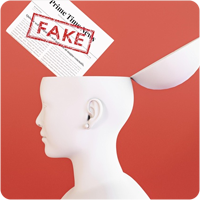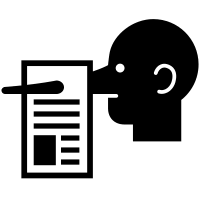Het arrangement Media v456 is gemaakt met Wikiwijs van Kennisnet. Wikiwijs is hét onderwijsplatform waar je leermiddelen zoekt, maakt en deelt.
- Auteur
- Laatst gewijzigd
- 28-11-2025 12:10:05
- Licentie
-
Dit lesmateriaal is gepubliceerd onder de Creative Commons Naamsvermelding-GelijkDelen 4.0 Internationale licentie. Dit houdt in dat je onder de voorwaarde van naamsvermelding en publicatie onder dezelfde licentie vrij bent om:
- het werk te delen - te kopiëren, te verspreiden en door te geven via elk medium of bestandsformaat
- het werk te bewerken - te remixen, te veranderen en afgeleide werken te maken
- voor alle doeleinden, inclusief commerciële doeleinden.
Meer informatie over de CC Naamsvermelding-GelijkDelen 4.0 Internationale licentie.
Het thema 'Media' (v456) is ontwikkeld door auteurs en medewerkers van StudioVO.
Fair Use
In de Stercollecties van StudioVO wordt gebruik gemaakt van beeld- en filmmateriaal dat beschikbaar is op internet. Bij het gebruik zijn we uitgegaan van fair use.
Meer informatie: Fair use
Mocht u vragen/opmerkingen hebben, neem dan contact op via de
helpdesk VO-content.
Aanvullende informatie over dit lesmateriaal
Van dit lesmateriaal is de volgende aanvullende informatie beschikbaar:
- Toelichting
- Dit thema valt onder de arrangeerbare leerlijn van de Stercollectie voor Engels voor vwo, leerjaar 4, 5 en 6. Dit is thema: 'Media'. Dit thema omvat de volgende volgende onderwerpen: - What is fake news? - Fake news as fact? - Impact of media De grammaticaopdrachten gaan over present/future/past en mixed conditionals
- Leerniveau
- VWO 6; VWO 4; VWO 5;
- Leerinhoud en doelen
- Engels;
- Eindgebruiker
- leerling/student
- Moeilijkheidsgraad
- gemiddeld
- Studiebelasting
- 16 uur 0 minuten
- Trefwoorden
- arrangeerbaar, engels, fake news as fact?, impact of media, media, mixed conditionals, present/future/past, stercollectie, v456, what is fake news?
Gebruikte Wikiwijs Arrangementen
VO-content Engels. (2020).
Fake news as fact v456
VO-content Engels. (2020).
Impact of media v456
VO-content Engels. (2020).
What is fake news? v456

 Media
Media What do you need to know?
What do you need to know?
 In this first section we look at what the media actually means, and aspects that it includes. We reflect upon our own interaction with media (including social media) and how important, or not these interactions are.
In this first section we look at what the media actually means, and aspects that it includes. We reflect upon our own interaction with media (including social media) and how important, or not these interactions are.


 With your partner, answer these questions.
With your partner, answer these questions. You are going to read an article about fake news.
You are going to read an article about fake news.




 You are going to write a letter of complaint to the BBC.
You are going to write a letter of complaint to the BBC.
 What have you learnt in this period?
What have you learnt in this period? Continuing the topic of the news, let’s now turn our attention to the newspapers. Does anyone still read the newspapers? Do your parents or grandparents read a daily newspaper on printed paper? Or do they subscribe to a paper and read it on a tablet? Do you read newspapers? Let’s find out what we know about newspapers nowadays.
Continuing the topic of the news, let’s now turn our attention to the newspapers. Does anyone still read the newspapers? Do your parents or grandparents read a daily newspaper on printed paper? Or do they subscribe to a paper and read it on a tablet? Do you read newspapers? Let’s find out what we know about newspapers nowadays.  How many UK national newspapers can you name?
How many UK national newspapers can you name? You’re going to read an article. The headline has been jumbled.
You’re going to read an article. The headline has been jumbled. Read the article and find verbs that mean the following:
Read the article and find verbs that mean the following: Let's look at ... mixed conditionals.
Let's look at ... mixed conditionals. Look at the picture. What can you see? Who do you think the person is and what are they doing?
Look at the picture. What can you see? Who do you think the person is and what are they doing? You have been asked to provide a guide for younger pupils on spotting fake news.
You have been asked to provide a guide for younger pupils on spotting fake news.
 In this section we look at the effect of the media on young people.
In this section we look at the effect of the media on young people. Read the questions and choose your answers.
Read the questions and choose your answers. You are going to read part of an article about the influence of the media on the psychosocial development of children.
You are going to read part of an article about the influence of the media on the psychosocial development of children.

 If your school participates in VO-content, you can practice with the English practice program 'Oefenprogramma Engels'.
If your school participates in VO-content, you can practice with the English practice program 'Oefenprogramma Engels'. Can do statements
Can do statements